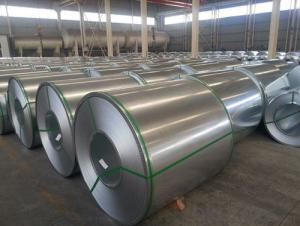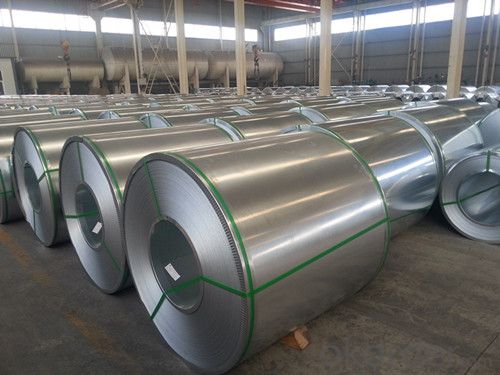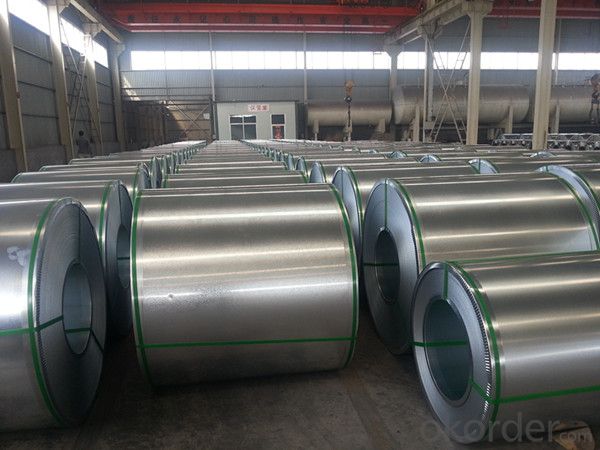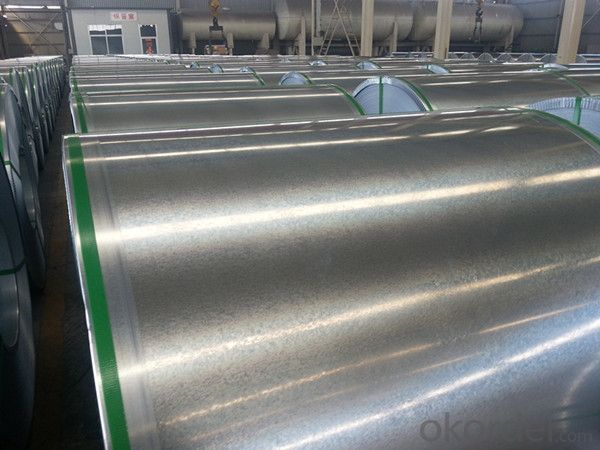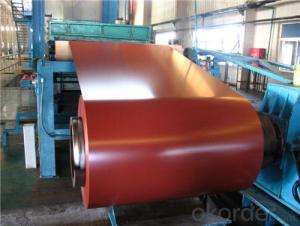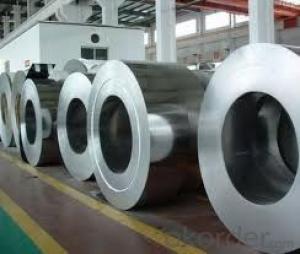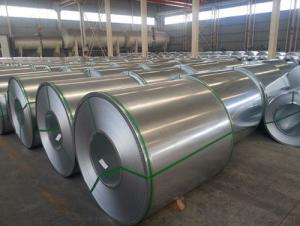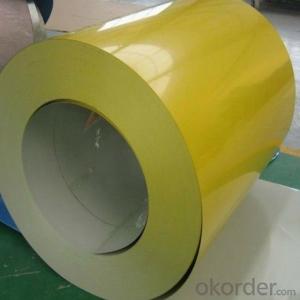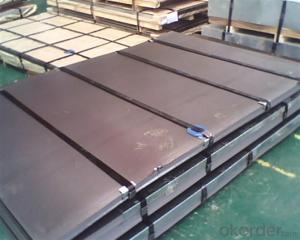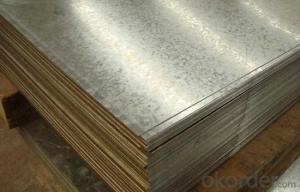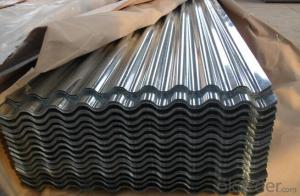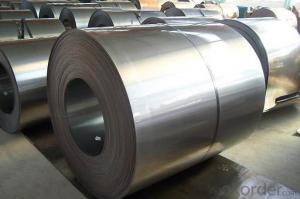Galvanized Steel Coils/Sheets from China CNBM
- Loading Port:
- China main port
- Payment Terms:
- TT OR LC
- Min Order Qty:
- 25 m.t.
- Supply Capability:
- 100000 m.t./month
OKorder Service Pledge
OKorder Financial Service
You Might Also Like
Product Description:
OKorder is offering high quality Cold rolled Hot Dip Galvanized Steel Coil at great prices with worldwide shipping. Our supplier is a world-class manufacturer of galvanized steel, with our products utilized the world over. OKorder annually supplies products to European, North American and Asian markets. We provide quotations within 24 hours of receiving an inquiry and guarantee competitive prices.
Product Applications:
Cold rolled Hot Dip Galvanized Steel Coil is ideal for fabricating and manufacturing applications.
Product Advantages:
OKorder's Galvanized Steel Coil is durable, boasts high stiffness and load-bearing qualities, and is recyclable.
Main Product Features:
· Premium quality
· Prompt delivery & seaworthy packing (30 days after receiving deposit)
· Corrosion resistance
· Can be recycled and reused
· Mill test certification
· Professional Service
· Competitive pricing
Product Specifications:
Manufacture: Hot rolled
Coil ID: 508mm
Coil OD: 900-1500 mm
Grade: DX51D+Z
Coating: 30 – 180g/m² (both sides)
Dimensions:
Thickness: 0.2mm – 1.0mm
Width: 600mm, 914mm, 1000mm, 1220mm, 1250mm
Coil Weight: 4 – 6mt
Length: 6m, 9m, 12m
FAQ:
Q1: Why buy Materials & Equipment from OKorder.com?
A1: All products offered byOKorder.com are carefully selected from China's most reliable manufacturing enterprises. Through its ISO certifications, OKorder.com adheres to the highest standards and a commitment to supply chain safety and customer satisfaction.
Q2: How do we guarantee the quality of our products?
A2: We have established an advanced quality management system which conducts strict quality tests at every step, from raw materials to the final product. At the same time, we provide extensive follow-up service assurances as required.
Q3: How soon can we receive the product after purchase?
A3: Within three days of placing an order, we will begin production. The specific shipping date is dependent upon international and government factors, but is typically 7 to 10 workdays.
Q4: What makes stainless steel stainless?
A4: Stainless steel must contain at least 10.5 % chromium. It is this element that reacts with the oxygen in the air to form a complex chrome-oxide surface layer that is invisible but strong enough to prevent further oxygen from "staining" (rusting) the surface. Higher levels of chromium and the addition of other alloying elements such as nickel and molybdenum enhance this surface layer and improve the corrosion resistance of the stainless material.
Q5: Can stainless steel rust?
A5: Stainless does not "rust" as you think of regular steel rusting with a red oxide on the surface that flakes off. If you see red rust it is probably due to some iron particles that have contaminated the surface of the stainless steel and it is these iron particles that are rusting. Look at the source of the rusting and see if you can remove it from the surface.
Q6: What is the difference between galvanized steel and Galvalume steel?
A6: Galvanized steel is metallic coated with Zinc in various coating weights. Minimum recommended for painted metal roofs is G90. Galvalume is a zinc and aluminum coated steel that becomes an alloy and is recommended in either painted or bare applications with a minimum coating weight of AZ50. Galvalume has an excellent performance life in bare exposures. Hence if you are using a bare panel use Galvalume and if painted use either.
Images:
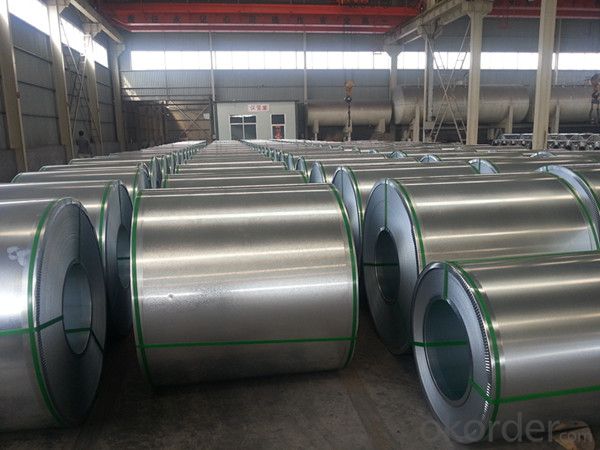
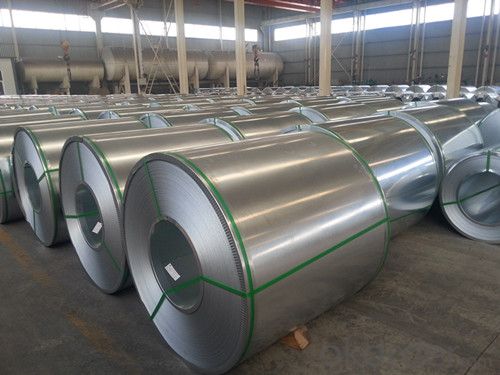
- Q: which one(glass or steel)has more power and velocity? im planning on using my slingshot for hunting.
- Steel has more mass.
- Q: How are steel coils used in the HVAC industry?
- Steel coils are commonly used in the HVAC industry as a key component in air conditioning and heating systems. They are used to transfer heat energy, allowing the system to cool or heat the air efficiently. The steel coils act as heat exchangers, absorbing heat from the air and releasing it into the environment or vice versa. This process helps regulate the temperature and improve the overall performance of HVAC systems.
- Q: which metals have a higher density than steel? and how does the density compare to steel( example: tungsten carbide is 2x [i think] more dense than steel.)
- This Site Might Help You. RE: what metals are more dense than steel? which metals have a higher density than steel? and how does the density compare to steel( example: tungsten carbide is 2x [i think] more dense than steel.)
- Q: How are steel coils used in the manufacturing of transportation equipment?
- Steel coils are used in the manufacturing of transportation equipment as they provide a strong and durable material for various components such as frames, bodies, and chassis. These coils are often processed and shaped into different forms, allowing for customization and versatility in the design and construction of vehicles, including cars, trucks, trains, and ships.
- Q: What are the different methods of coil blanking for irregular shapes?
- There are several methods of coil blanking for irregular shapes. One common method is laser blanking, which uses a high-powered laser to cut the shape directly from the coil. This method is highly precise and allows for complex shapes to be cut with minimal waste. Another method is water jet blanking, which uses a high-pressure stream of water mixed with abrasive particles to cut the shape from the coil. Water jet blanking is often used for thicker materials or when the material being cut is sensitive to heat. Additionally, there is also die blanking, which involves the use of a die to stamp the shape out of the coil. This method is commonly used for larger production runs and can be automated for increased efficiency. Lastly, there is also plasma blanking, which uses a plasma torch to cut the shape from the coil. Plasma blanking is often used for thicker materials or when high cutting speeds are required. Overall, the choice of method for coil blanking irregular shapes depends on factors such as material thickness, shape complexity, production volume, and desired precision. Each method has its advantages and limitations, and selecting the most suitable method is crucial for achieving optimal results.
- Q: How are steel coils cut into smaller sizes?
- Steel coils are cut into smaller sizes using a machine called a slitting line. This machine employs a set of circular blades that cut through the steel coil, creating narrower strips or sheets of the desired size. The slitting line can adjust the width of the cuts and can also remove any rough edges or burrs.
- Q: How are steel coils used in the manufacturing of construction equipment?
- Steel coils are used in the manufacturing of construction equipment as they serve as a primary raw material for the fabrication of various structural components such as frames, bodies, and chassis. These coils are typically processed through cutting, bending, welding, and shaping techniques to create the necessary parts that provide strength, durability, and stability to construction machinery.
- Q: How are steel coils used in the manufacturing of automotive frames?
- Steel coils are used in the manufacturing of automotive frames by being processed into flat sheets, which are then cut and formed into the desired shape and size to create the frame components. These components are then welded together to form the strong and durable structure of the automotive frame.
- Q: What is the maximum temperature steel coils can withstand?
- The maximum temperature that steel coils can withstand varies depending on the specific grade and type of steel being used. Steel is known for its high heat resistance and can typically withstand temperatures ranging from 550°C to 1,100°C (1,022°F to 2,012°F), depending on the grade. However, it is important to note that prolonged exposure to high temperatures can cause steel to lose its structural integrity and result in permanent deformation or even failure. Therefore, it is crucial to adhere to the manufacturer's guidelines and specifications when determining the maximum temperature that steel coils can withstand in specific applications.
- Q: How are steel coils used in the production of shipping containers?
- Steel coils are used in the production of shipping containers as they serve as the primary material for constructing the container body. These coils are cut, shaped, and welded together to form the walls, roof, and floor of the container, providing strength, durability, and protection for the goods being transported.
Send your message to us
Galvanized Steel Coils/Sheets from China CNBM
- Loading Port:
- China main port
- Payment Terms:
- TT OR LC
- Min Order Qty:
- 25 m.t.
- Supply Capability:
- 100000 m.t./month
OKorder Service Pledge
OKorder Financial Service
Similar products
Hot products
Hot Searches
Related keywords
